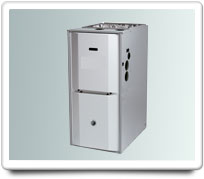Question Topic
Gas Furnace Or Boiler Low Pressure In Faucets

POLICY-Wizard™ calculates your ideal home care program to avoid problems with your Gas Furnace or Boiler, but sometimes trouble can still occur. Here are answers to questions about gas furnace or boiler low pressure in faucets.
QUESTION FROM Jean
In late Fall,I had the boiler furnace serviced. While paying the serviceman, I remembered to mention that the water pressure was low in all the faucets(old house).This probably had been happening since around June. It's very hot water, so with the cold water at full pressure, it wasn't causing me immediate concern. He told me it sounded like the heating coil in my 9 year old boiler must be corroded by hard water(private well). The coil would probably need to be replaced in the Spring. Since then, the pressure has lowered to a dribble. I can heat enough water for daily use on the stove.......but I'm wondering if this same corroded coil is what is heating the water flowing through the baseboard heater pipes. What could happen if there was little or no water in those pipes? The furnace is doing it's job properly so far, but could it be damaged if I wait until the warm weather comes to have the coil repaired- another 3 or 4 months?
The pipes are not frozen and all valves seem to be open.
Thank you for this excellent service.
ANSWER FROM POLICY-Wizard™
Dear Jean:
I'm starting to get the picture here, thanks for the additional information you sent.
Do you have a separate hot water heater for the hot water that goes to your faucets? You likely have a separate hot water tank (about 4-6 feet tall and about 2 feet in diameter), but does the hot water tank have its own burner at the bottom of it? Or is the only burner that you have the one in your furnace, and this heats up the water for both your baseboard heating system, and your domestic hot water?
What I am wondering, especially since you said you were on a private well which could be very hard water, is whether you have deposits that have been building up in the valves or piping of your hot water heater, and this is what is causing your low pressure at your faucets.
One of the first things to check is to backflush your water heater and see if you can flush out alot of sediments. Also, when you open the drain valves, you will be able to see if the water comes out strong, or if there appears to be blockages somewhere upstream of the valve.
If you go to our Water Heater webpage of our online Maintenance Library, we describe for you how to backflush your water heater:
http://www.home-wizard.com/maintenance/waterheater.asp
Also, if you go to our "Info-tainment Videos" webpage, there is a somewhat light-hearted video which if you skip ahead to the 2 minute 35 second mark, the video walks you through how to do the water heater backflush procedure.
If you haven't had your water heater backflushed in a while, this is good to do anyways. But as you are doing it, by observing where you do and don't have good flow, you can start to isolate which valve, piping, etc. is where the buildup of desposits is blocking your system.
Now turning to what sounds like is your bigger question. Which is whether the problem you are seeing with your hot water faucets could be an indication that you are about to have a larger problem with you baseboard hot water heating system, right?
To check this, I would suggest that you follow the procedure that we have for purging the air out of the zones of your heating system. You can find this procedure by going to the Baseboard Heating System webpage of our online Maintenance Library, and then scrolling down to the "question and answer" section: http://www.home-wizard.com/maintenance/baseboardheating.asp
If when you go to open the drain valve for each zone that you find low pressure, then you likely have deposit build-up problems somewhere in your hot water boiler system as well.
Hope this is helpful.
If you still have questions, just let us know.
Home-Wizard.com

 Overview
Overview Routine Care
Routine Care Q & A
Q & A Articles
Articles